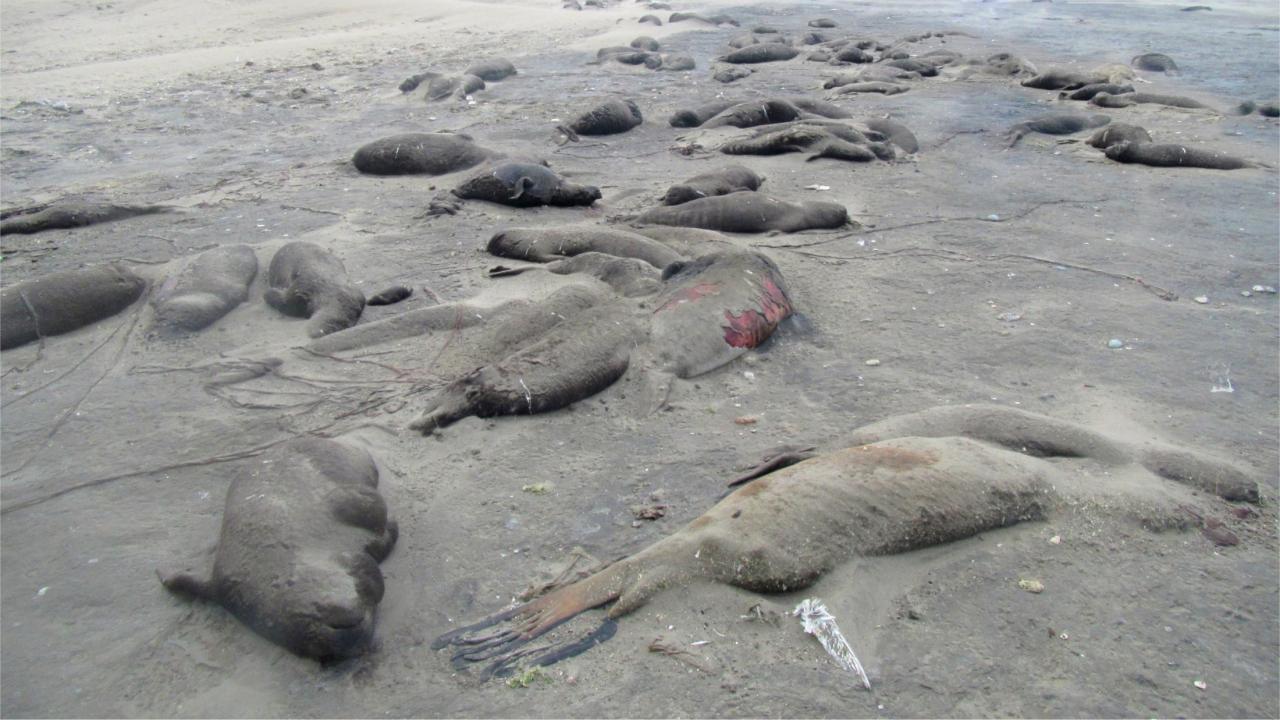
Avian Influenza Virus Is Adapting to Spread to Marine Mammals
Findings Raise Concerns About Wildlife Conservation and Ecosystem Health
The highly pathogenic avian influenza virus H5N1 has adapted to spread between birds and marine mammals, posing an immediate threat to wildlife conservation, according to a study from the University of California, Davis, and the National Institute of Agricultural Technology (INTA) in Argentina.
The study, published in the journal Emerging Infectious Diseases, is the first genomic characterization of H5N1 in marine wildlife on the Atlantic shore of South America.
For the study, scientists collected brain samples from four sea lions, one fur seal and a tern found dead at the most affected sea lion rookery in Argentina. All tested positive for H5N1.
Genome sequencing revealed that the virus was nearly identical in each of the samples. The samples shared the same mammal adaptation mutations that were previously detected in a few sea lions in Peru and Chile, and in a human case in Chile. Of note, the scientists found all these mutations also in the tern, the first such finding.
“This confirms that while the virus may have adapted to marine mammals, it still has the ability to infect birds,” said first author Agustina Rimondi, a virologist from INTA. “It is a multi-species outbreak.”
